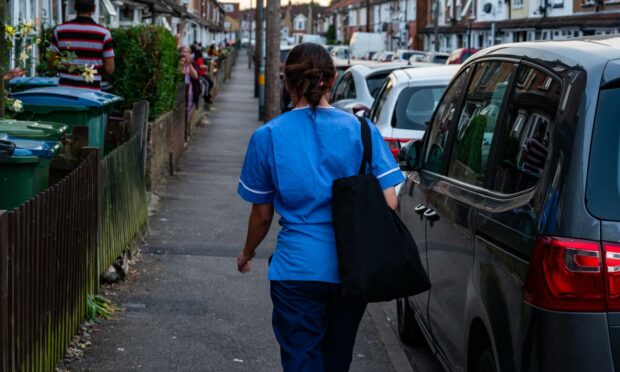With waiting times growing and budgets being stretched, the Scottish Government has been urged to focus even more on the future of the NHS.
Audit Scotland says the health service remains under “severe pressure” despite billions of pounds of investment to cover pandemic-related costs.
And the country’s auditor general has laid out a series of recommendations he feels are needed to keep the NHS afloat and give patients the best treatment possible.
Stephen Boyle said: “Putting Covid costs to one side, health spending is rising every year, meaning less money for other public services.
“There’s now a clear opportunity to do things differently by building on the innovation and collaboration we’ve seen across the NHS in the last few years.”
1. Be more open on waiting times
Two years ago, auditors called for the NHS to publish waiting times figures based on how urgently patients should be seen.

These levels range from urgent operations required within 24 hours, to those which can safely be scheduled after 12 weeks.
Today’s audit report says progress is being made on releasing these stats publicly, and this will “enable transparency and scrutiny” of the health service.
2. Clamp down on delayed discharges
At the start of the Covid pandemic, there was a sharp decline in the number of delayed discharges from Scotland’s hospitals.
This was due to a greater emphasis on getting patients home as soon as possible so staff could focus more on the coronavirus response.
In early 2020, there were approximately 1,500 daily bed days blocked by people whose discharges were delayed.
But, in April, this stopped at around 700.
“The measures to reduce delayed discharges, particularly during the first wave of the pandemic, were effective in the short term but a longer-term, more sustainable solution is needed,” the report said.
3. Encourage struggling health workers to ask for help
As it stands, almost three-quarters of nurses feel they’re under too much pressure at work.
According to a Royal College of Nursing study last year, more than 60% surveyed were considering quitting – saying they feel undervalued and underpaid.
Audit Scotland says the wider picture of how much support for NHS staff may be required is “not clear”, and could be larger.
“There is not a culture of seeking help in the health and social care sector,” its report said.
It wants more encouragement for managers to discuss wellbeing with staff, but added: “Achieving this will take time and involve managing the tension between the competing demands of staff wellbeing, the pandemic response, and remobilisation.”

